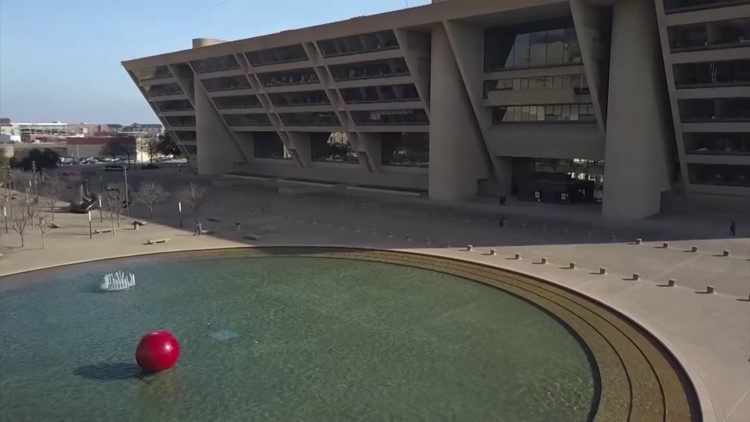DALLAS — Officials are recommending Dallas increase its yearly contribution to the Dallas Police and Fire pension system and work to add additional contributions by “monetizing” existing city assets to shore up the retirement fund for first responders.
The system has $3.4 billion in unfunded liabilities as of Jan.1, 2022, and, at the current contribution rate, the system wouldn’t be fully funded until 2090, officials say.
The pension board has until November 2024 to adopt rules that meet state requirements. The need for a plan to build the police and firefighter retirement fund comes after the fund reportedly nearly ran out of money in 2016. Pension officials cite bad real estate investments and a “run on the bank” as the causes of the 2016 issue.
This week, pension officials were briefed on three recommendations they hope would help stabilize the fund.
The first recommendation involves the city making fixed additional contributions of $20 million, $40 million, and $60 million, respectively, over the first three years of the plan. After that, they recommended city officials use an actuarially determined contribution rate beginning in fiscal year 2027, and the third recommendation was the city should quickly begin looking into opportunities to “monetize” existing city assets.
Among the “monetization” opportunities former Dallas police and fire pension board member Rob Walters recommended city officials look into are city land and real estate assets, city parking and waste/landfill sites, underutilized city facilities, and more.
“Our goals are threefold…first and foremost, we want police and fire to never have to think twice about the solvency and the capacity of this fund in order to fund the retirements that they have earned and are entitled to,” said Rob Walters, who served on the Dallas police and fire pension board. “Secondly, we want to make sure that we amply meet the statutory requirement that the legislature has set out and to obtain the imprimatur of the police and fire pension board where they have sanctioned this as a credible pension program going forward. And third, we want to make sure that the city has the optionality and the flexibility to be able to pay for this in the most economically efficient way possible.”
“The city need not wait on this. The city tomorrow could get underway,” Walters added. “Look at this as an opportunity to monetize some assets and reduce this burden.”
City councilmember Cara Mendelsohn said she agreed with some of the recommendations but was concerned about the lack of cost of living adjustments.
You have to be able to attract and retain staff, and without a (cost of living adjustment) I don’t think we’re going to do that. We’re already struggling mightily with our recruiting,” Mendelsohn said.
Walters, though, recommended dealing with the unfunded liabilities first.
“Our recommendation on this is to solve this problem first,” Walters said. “We understand the issue of (cost of living adjustments) and benefits...our recommendation is to focus like a laser on solving this problem.”
City officials said in a news release that they “will continue to work with the Ad Hoc Committee on Pensions to finalize and submit a funding soundness restoration plan.”
“We’re on schedule to submit our funding soundness restoration plan to the Texas Pension Review Board by Fall 2024,” said Jack Ireland, Chief Financial Officer for the city of Dallas. “The collaborative effort of the Ad Hoc Committee on Pensions and expert advice from interested stakeholders will help the City finalize a plan that ensures the long-term financial soundness of the Dallas Police and Fire Pension System while protecting Dallas residents.”
The Ad Hoc Committee on Pensions will reconvene Thursday, Jan. 11, 2024.



